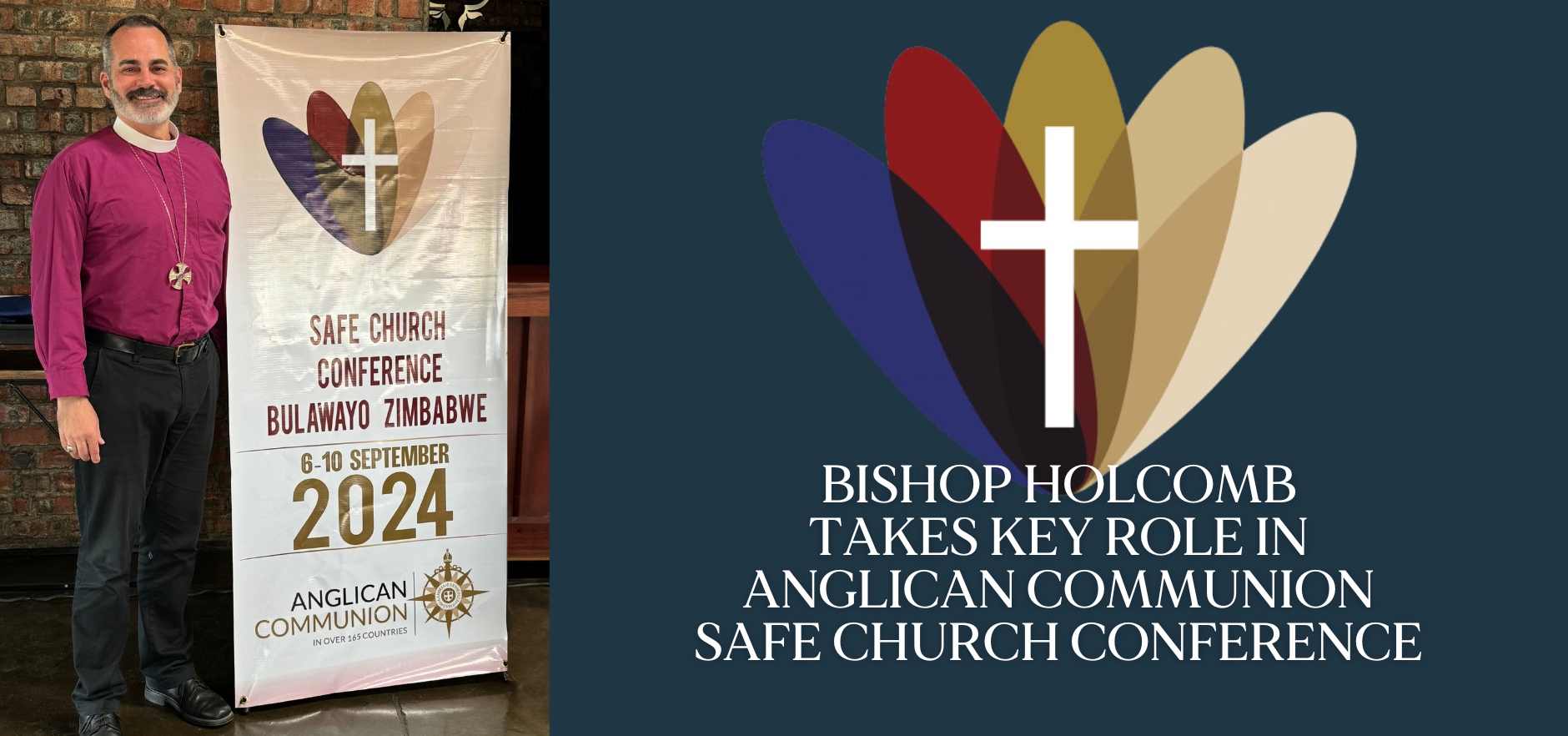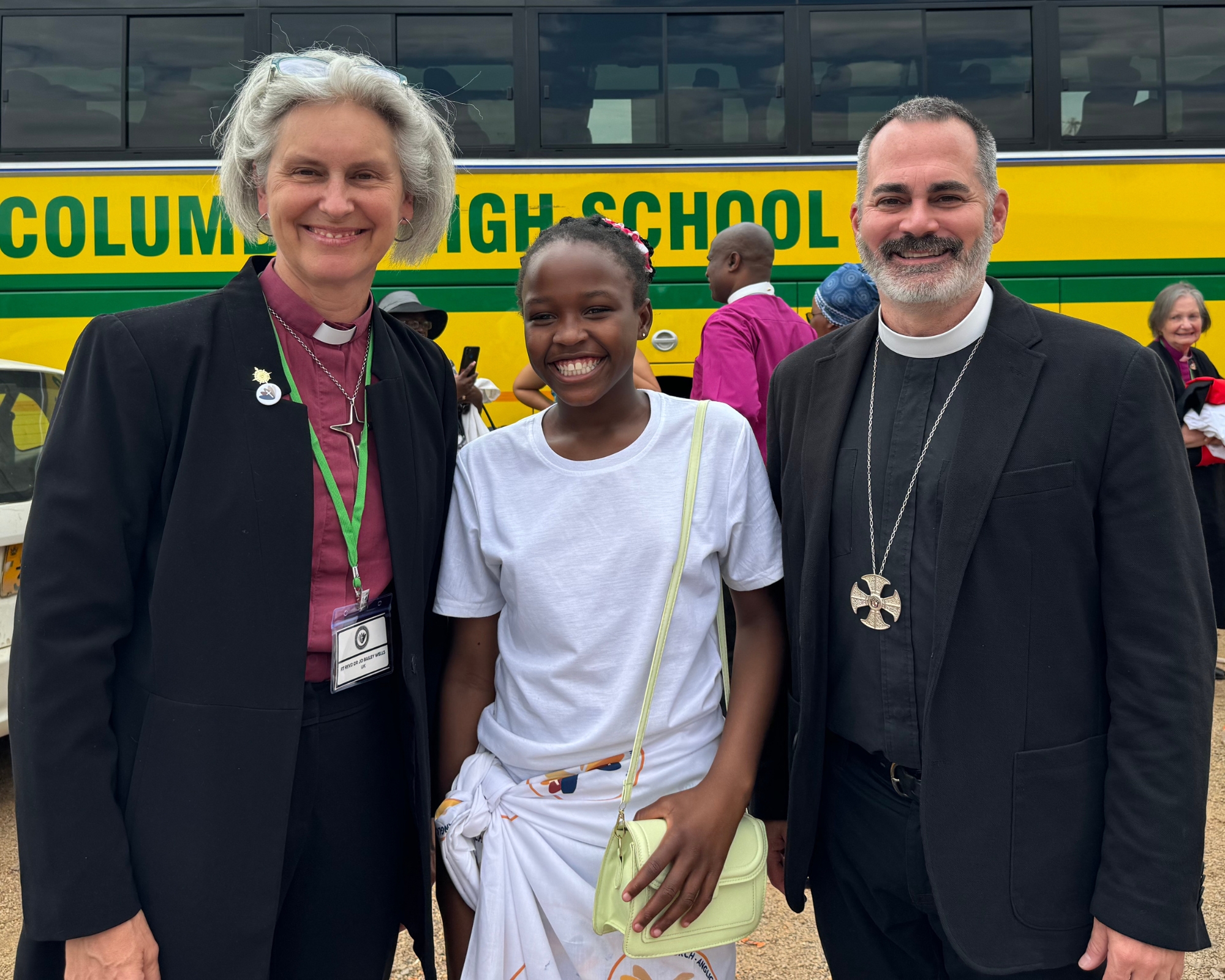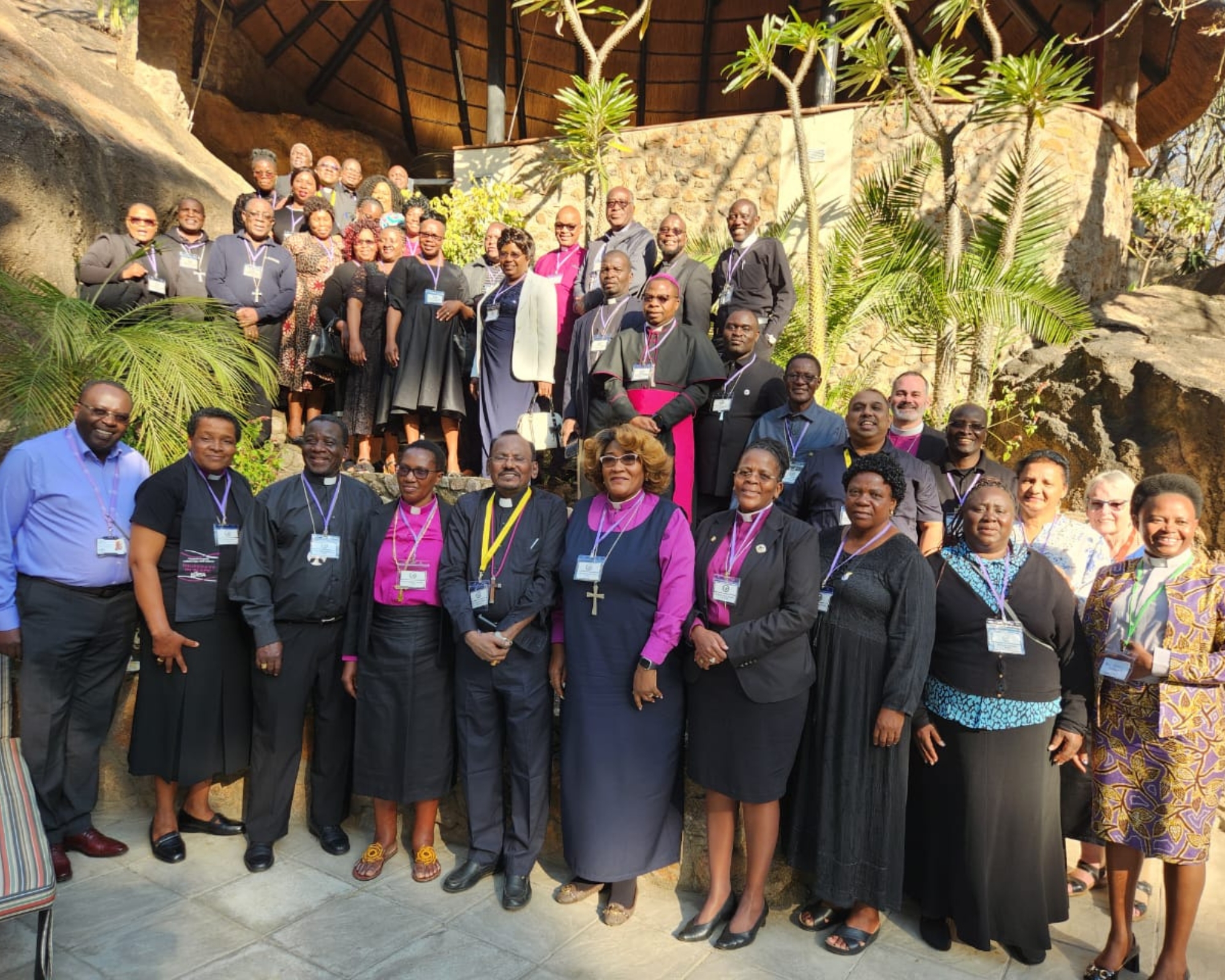
Why would an always-busy bishop from the Episcopal Diocese of Central Florida travel all the way to Bulawayo, Zimbabwe, for more than a week? For the Rt. Rev. Dr. Justin S. Holcomb, the answer revolves around just two essentials: promises and people. Both drove his participation and leadership in the recent Anglican Safe Church and Leadership Conference 2024, which brought in 220 clergy and laypeople from 30 countries and 28 provinces. Hosted by The Church of the Province of Central Africa, the event was held at the King’s Kraal in Bulawayo, Zimbabwe, Sept. 5-11 and organized by the Anglican Communion Safe Church Commission in partnership with the Council of Anglican Provinces of Africa and the Episcopal Ministry team of the Anglican Communion office.
“I made promises at my consecration as bishop ‘to share with [my] fellow bishops in the government of the Whole Church’ and to ‘sustain [my] fellow presbyters and take counsel with them,'” Holcomb said, quoting the “The Examination” under “The Ordination of a Bishop” in the Book of Common Prayer. He explained that while his main priority is his work in the Diocese of Central Florida, his roles in Province IV, the House of Bishops for The Episcopal Church, and the Anglican Communion add multiple layers of service and responsibility. But the bishop’s passion for the safe church initiative in Central Florida and beyond also extends to the people his work impacts.
“It’s important to me to be a small part of such an important initiative to make sure that survivors, thousands of survivors, are cared for well, and hopefully thousands upon thousands of people who possibly would have been harmed won’t be harmed,” he said. “It’s encouraging to know that responding to survivors and preventing abuse, but also dealing responsibly with perpetrators – and stopping perpetrators – is being done intentionally and in a robust manner.”

L-R Bishop Jo Bailey Wells, a young woman who participated in the service welcoming delegates to the safe church conference, and Bishop Justin Holcomb | Photo courtesy Bishop Holcomb
Holcomb, a survivor of childhood sexual abuse who has taken leadership in the area of abuse prevention and response for many years now, first assisted the Anglican Communion in this critical area when the Rt. Rev. Jo Bailey Wells, bishop for Episcopal Ministry in the Anglican Communion and now also the Communion’s deputy secretary general, invited him – only weeks after his election as bishop – to join the Lambeth Phase 3 Steering Committee as a resource consultant.
In this role, he attended that committee’s Feb. 28 – March 3, 2023, meeting in London and also participated this year in an April 17 webinar sponsored by the Episcopal Ministry Team in collaboration with the Anglican Communion Safe Church Commission. During the webinar, Holcomb shared a testimony of his experience as a survivor of sexual abuse and also discussed both the importance of the safe church initiative and the specifics around this effort in Central Florida.
Since that time, not only has he broadened safe church work in Central Florida, but his work with the Anglican Communion Safe Church Commission has also expanded. Initially, he was asked to join the leadership team to plan the conference in Zimbabwe but soon received an invitation to attend and speak. Later, Wells invited him to join her and others in specific ministry with the bishops in attendance the day before and the day after the conference. And still later, when Wells became ill, he took on even more responsibility for working with the 31 bishops who attended from 17 countries and 11 provinces.
“My responsibilities grew step by step,” Holcomb said. “Bishop Jo and I were working with two people in planning: the Rev. Canon Kofi deGraft Johnson, general secretary council of provinces in Africa, and also the Rt. Rev. Cleophas Lunga, bishop of Matabeleland and a member of the Safe Church Commission. Originally the plan was that I would lead and facilitate one session with the bishops, Bishop Jo would lead and facilitate one, and then she was also going to moderate one with Canon Kofi and Archbishop Albert Chalmers. When she was not available, I assumed more responsibility for that first day, and I ended up doing a session on leadership, trust and transparency.”
Holcomb also moderated a conversation with the Very Rev. Canon Dr. Sammy Wainaina, adviser to the archbishop of Canterbury for Anglican Communion Affairs, and the Most Rev. Albert Chama, archbishop of Central Africa and bishop of Lusaka. “On the last day, I led and facilitated a session with the bishops on pastoral care and conflicts of interest,” he said. “This was a conversation about assessing the wide scope of pastoral needs in a situation of abuse while being aware of possible conflicts of interest, and navigating that well, wisely and responsibly.”

Bishops and spouses who attended the pre-conference meeting tailored to their needs | Photo courtesy the Anglican Communion
Throughout the conference, “The safe church conversation was very welcome,” he said. “I saw lots of support for it. … There was an awareness of how important this initiative is similar to other places around the Anglican Communion. ‘Leading Safe Churches,’ the title and theme of the conference, must be a priority and dealt with openly and with clarity and transparency.”
Holcomb took particular interest in the pre- and post-conference sessions for bishops because of his role in planning and facilitating those segments. “We tailored the conversation specifically to issues that would serve bishops,” he said. “These issues were leadership, trust, transparency, pastoral care, conflicts of interest, how to implement safe church policies and practices, and barriers to implementing them.”
But he was also impressed with the conference overall. “It was very deliberate,” he said. “It was clear that the conference, content and the form of every session were very well thought-out. Early on, they discussed key topics such as ‘What is abuse? What are the effects of abuse? What is the importance of attending to that as Christians? What are some of the factors leading into abuse? What are factors that are barriers for dealing with abuse and issues of abuse well?’ And then they went into the practical aspects with the safe church guidelines.”
Holcomb stressed that the Anglican Safe Church Commission had developed safe church policies and practices for churches, dioceses and provinces, which are laid out on the commission’s website. “These are specific guidelines that are available and can be adopted and implemented,” he said. “At the Anglican Safe Church Conference, they didn’t just talk about the importance of guidelines and call people to enact and implement them, leaving them to figure out what those guidelines could be. They provided model guidelines or templates, because the needs vary from diocese to diocese, country to country and province to province. Certain dimensions of guidelines need to be highlighted and reinforced in various contexts.
“These were not developed just for the conference,” he said. “They were developed years ago. The conference was an opportunity to make them available, highlight them and talk about the importance of implementing and following them. And it wasn’t only an expert talking for an hour each session. They had experts who would talk, and then they would break that up with lots of small group engagement. They also had regular Bible studies, so they would pick themes or passages that would be related to the issue of safe church. Sometimes it was about specific issues of safe church, which involves a misuse of power or harm. Sometimes it was about God’s healing and God’s comfort in the work of Christ and how that applies to the effects of abuse.
“I told my story about being abused when I was 10; I was one of two people who shared their story – that was early on in the conference,” Holcomb said. “Toward the end of the conference, we had a panel on forgiveness: How do we think through and talk about forgiveness, both for anyone who was a survivor, but also to make sure that Christian leaders are talking about forgiveness in helpful, biblical, clear ways, as opposed to some of the harmful ways forgiveness can be discussed.”
“The breadth of content was staggering in how amazing it was, how much was covered and how clearly and carefully it was presented,” he added. “There were so many Bible studies, so many breakout groups, so there was lots of interaction, lots of facilitating, lots of discussion. That’s where the hard work and magic of a great conference is.”
Overall, Holcomb left the conference more enthusiastic than ever about the safe church initiative, noting, “It’s encouraging that the third-largest church in the world, the Anglican Communion, has such an important and well-thought-out and robust response to safe church issues.”
